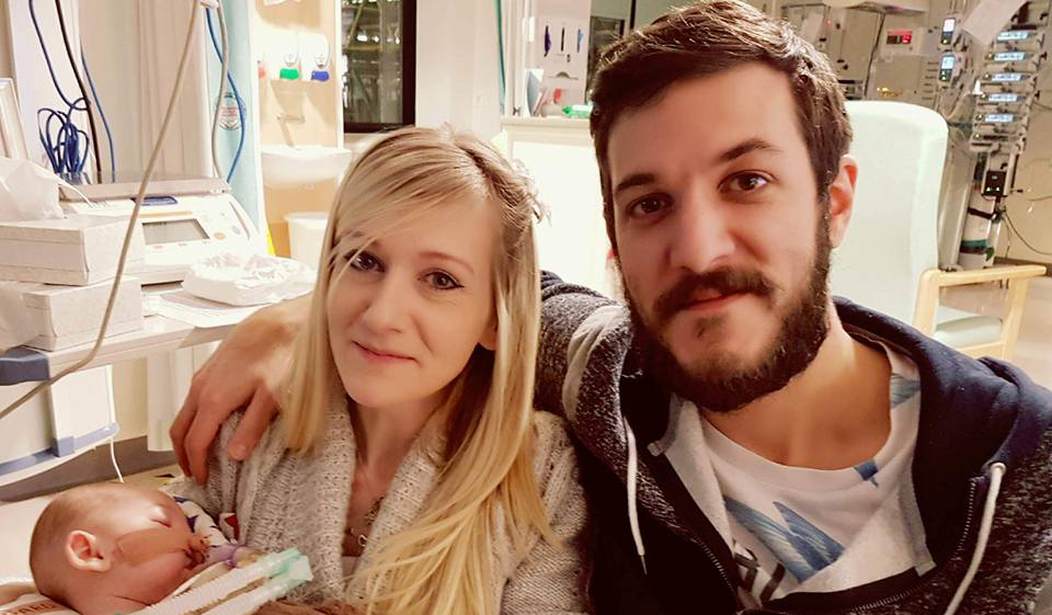A few days ago, the story of Charlie Gard finally ended, when his parents, having exhausted all hope, dropped their legal efforts to prevent his termination by the State through the National Health Service and the Great Ormond Street Hospital. Against his parents’ wishes — they had hoped to take him home, but they were refused by the NHS (why? Were they afraid it would kill him?) — Charlie was moved to a hospice. Charlie’s parents had asked to be given a week in the hospice so they could have that much more time with him, but instead, he was terminated directly after admission, “for insurance reasons.”
And that was that. But what have we learned?
The story began last year. Charlie was born on August 4 and appeared healthy at birth. But within a few months, he started exhibiting muscle weakness, and doctors determined he had a neuromuscular disease, mitochondrial DNA depletion syndrome (MDDS). In MDDS, a genetic defect causes certain tissues to lose their mitochondria. The mitochondria are a kind of organelle within the cells that convert oxygen and nutrients into adenosine triphosphate (ATP), which is then used for energy by the cell. You can think of them as a power station, burning metabolic fuel to provide the power to run the cell.
As Charlie’s cells were depleted of their mitochondria, they began to fade and die. In Charlie’s case, those cells were both muscle cells and nerve cells; Charlie was becoming weak and was losing cognitive function. Quickly enough, Charlie needed a respirator to live.
MDDS is considered untreatable by standard medicine. The NHS suggested to the parents that they should “pull the plug,” and when his parents resisted, the NHS applied to the British courts. Charlie’s parents started a fundraising drive and quickly collected £1.3 million for his continued treatment, but the courts sided with the NHS even though the parents now had private funding and a potentially helpful experimental treatment had been identified. The British courts said that not withstanding his parents’ wishes or the potential of the experimental treatment, Charlie must be allowed to die.
At this point, however, the legal fight had become very public, the outrage world wide. The pope weighed in against it; President Trump was against it; the U.S. Congress extended U.S. permanent residency to Charlie Gard so he could come directly to the U.S. for treatment. The question was getting out of hand, so the NHS allowed Charlie’s parents to bring in the outside doctors to examine him.
Of course, by this time, the struggle had taken months. MDDS is a degenerative disease, so every day untreated, Charlie was losing ground.
By the time Charlie’s parents were allowed to have him examined, he was too far gone, and his parents finally had to give up their legal challenges. But even then, the NHS had to keep control.
Now, there’s no way to know if the experimental treatment would have worked, even if Charlie had been released promptly. The odds weren’t great. On the other hand, we can be pretty confident that his condition was worsening every day, which means the chances of it working also got worse every day.
Even if the treatment didn’t work, we would have learned more about MDDS and about the experimental treatment. His parents would have known they’d done everything they could.
Instead, the major lesson we learned is that the British government, the National Health Service, and Great Ormond Street Hospital consider themselves in loco parentis for everyone in the UK, and they won’t suffer their paternal rights being restricted, even by a child’s natural parents. The State is your Mom, the State is your Dad, and they don’t want to let you move out of the basement.










Join the conversation as a VIP Member